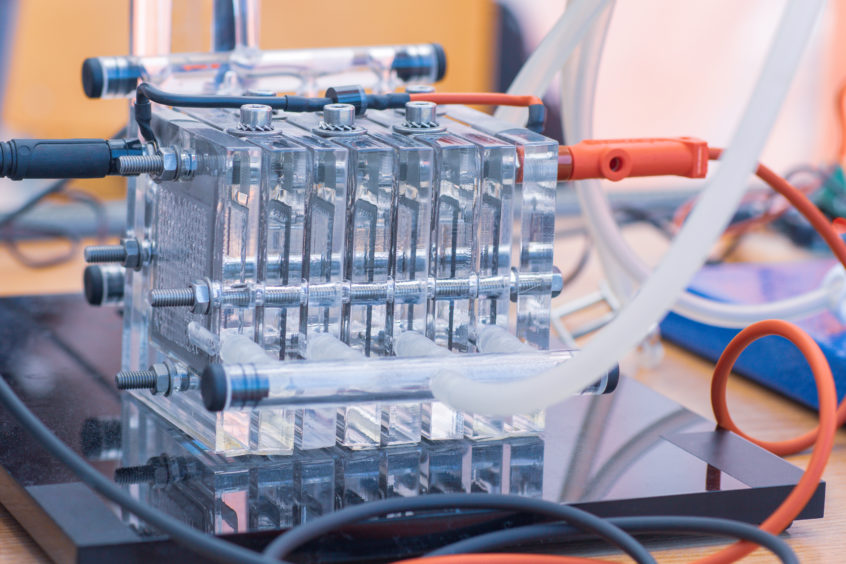
I could feel the long, lockdown-length hairs on the back of my neck beginning to rise and my blood pressure soar as I read the response of Steve Dunlop, chief executive of Scottish Enterprise, to the report by the Scottish Government’s Advisory Group on Economic Recovery (AGER).
“AGER’s report underlines the collaborative response required to allow Scotland to transition to a greener economy that has inclusiveness and wellbeing at its centre,” Dunlop said.
That’s nice, but then Dunlop goes on: “Scotland continues to be the most attractive destination in the UK for inward investment outside of London”.
He adds: “Foreign direct investment levels remain stable in Scotland’s priority areas where we excel, such as advanced manufacturing and low-carbon technologies”.
At no point – and I keep rereading this just to make sure – does he even mention indigenous companies and the potential for developing a low-carbon technology, advanced-manufacturing supply chain here in Scotland. I find this inexplicable.
Do not think for one minute this is just a misguided press release written by someone who has wrongly interpreted something said in a hurried briefing. I wish it were, but during a recent webinar, “Green Hydrogen at Industrial Scale for a Zero Carbon Future”, two senior managers in the energy groups from Scottish Enterprise and Highlands and Islands Enterprise said pretty much the same thing.
Both talked about the need for demonstration projects and the importance of attracting European manufacturers here. The problem here is because Scotland does not manufacture key hydrogen technology elements such as electrolysers or fuel cells or storage or compressors then as with previous demonstrators on Orkney and in Aberdeen, this hardware will have to be imported.
After the webinar I emailed them both to ask specifically about the manufacturing of electrolysers in Scotland. I did this because I believe electrolysers are the backbone to any future hydrogen economy and their manufacture and the consequent production of hydrogen for export and domestic use should – in theory – trigger the development and manufacture of a whole range of other hydrogen related technologies including applications.
As has been proven by the EU Commission, that opportunity is huge. It believes there may be investments of 180-470 billion euros in hydrogen production in Europe.
The responses I got made me despair. They included references to the fact Scottish Enterprise is talking to all the major electrolyser manufacturers in Europe, North America and Asia and pointing out the UK already has ITM Power and their planned Gigafactory. Also mentioned was that Scottish Development International “has been in various discussions with a number of electrolyser manufacturers and we are keen to attract them here to Scotland to set up a manufacturing base.”
A reference was also made to Doosan Babcock and Rolls Royce and their hydrogen fuel cells, and the fact they are not assembled here, at the minute, but there was a suggestion that if the market becomes large enough then “such opportunities come with it”.
Then there was the comment that with respect to oil and gas it is the service companies which “have a global reach, that lead the industry and our manufacturing is playing a supporting role”.
And to top it all off: “That’s the prize and the manufacturing would be the icing on the cake.”
Such a negative attitude to indigenous manufacturing is truly disturbing especially coming from an organisation which is supposed to be working in Scotland’s interests. In fact, it seems to be putting more effort into building up other countries manufacturing sectors than Scotland’s.
I genuinely know of no other allegedly advanced nation that would adopt such an attitude especially as Scotland now has a National Manufacturing Institute. Or is that mainly to attract foreign investment?
There is of course a role for the oil and gas service sector. In March, the Norwegian electrolyser and hydrogen refuelling station manufacturer NEL ASA entered into a strategic cooperation with Kvaerner, a company whose business is mainly related to the installation and development of offshore and onshore structures for the energy sector. The idea is to “collaborate on specific green hydrogen projects and standardisation of solutions for large scale hydrogen production plants”.
So, whilst we may also have service companies that could probably do that, we will not have the electrolyser manufacturer. Other electrolyser manufacturers around the world will undoubtedly set up similar collaboration agreements.
There is something seriously wrong here and I’m going to be forthright about it and say that I now actually consider Scottish Enterprise to be an obstacle to progress as far as establishing a net-zero, high-value manufacturing supply chain is concerned.
We should in fact already be a major player in the hydrogen sector given the claims we make to overseas investors and companies with regards to the skills of Scottish engineers and others – and, of course, the now ridiculous claim Aberdeen makes to being Europe’s Energy Capital.
I believe I’ve now found one good reason why we are not and I think we had better do something about it before it’s too late. Scottish Enterprise has to be rebuilt from top to bottom with opportunism embedded in its culture.
Dick Winchester is a member of the Scottish Government’s energy advisory board
